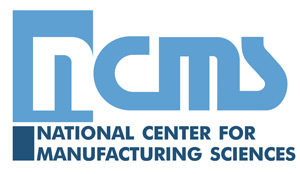Improving Medical Equipment Maintenance and Sustainment through Simulators and Trainers – Phase II
NCMS Project #: 142093
Problem: Based on recent commercial innovations, advanced medical equipment and devices have become a complex and expensive commodity. Commercial medical devices designed for use in hospitals may not be as easy or effective to use in a medical evacuation (MEDEVAC) helicopter or ground ambulance where the environment presents a host of additional maintenance and sustainment issues. This requires specialized maintenance and sustainment training under austere conditions, to provide realistic scenarios in which medical personnel learn how to keep vital equipment working, and ultimately save lives.
Benefit: This initiative will demonstrate new and improved training methods, which lead to better trained MEDEVAC personnel and result in improved patient care, increased maintenance and sustainment of medical equipment and devices, and reduced total equipment lifecycle costs. The results from this initiative can provide other industries with new innovative methods and technologies to improve integrated specialized technical and maintenance skill training for the benefit of the general public.
Solution/Approach: Phase II will take the lessons learned during Phase I and apply them to a mobile surgical unit vehicle that can move to sites of pandemics, earthquakes, tsunamis and other natural disasters to conduct surgery and other complex medical procedures on critical patients when timely medical evacuations are not possible. Development of a new integrated training simulator designed specifically to improve the en-route surgical medical care and surgical medical equipment maintenance training for mobile field surgical and treatment personnel will replicate the conditions and environments required to load/unload and treat causalities, as well as operate and maintain the medical equipment.
Impact on Warfighter:
- Foster integrated specialized technical and maintenance skill training
- Improve physical skills and enhance decision-making
- Increase device operational readiness
- Enhance quality of medical care and chance of survival
- Reduce overall maintenance costs
DOD Participation:
- Project Manager (PM) Medical Simulators
- Project Manager Mounted Armored Vehicles (PM MAV)
- Army Medical Center of Excellence (MEDCoE)
Industry Participation:
- Defense Engineering Services (DES)
- NCMS
Benefit Area(s):
- Cost savings
- Maintenance avoidance and reliability
- Safety
- Maintenance management improvement
- Improved readiness
- Reliability improvement
Focus Area:
- Workforce development/visualization
